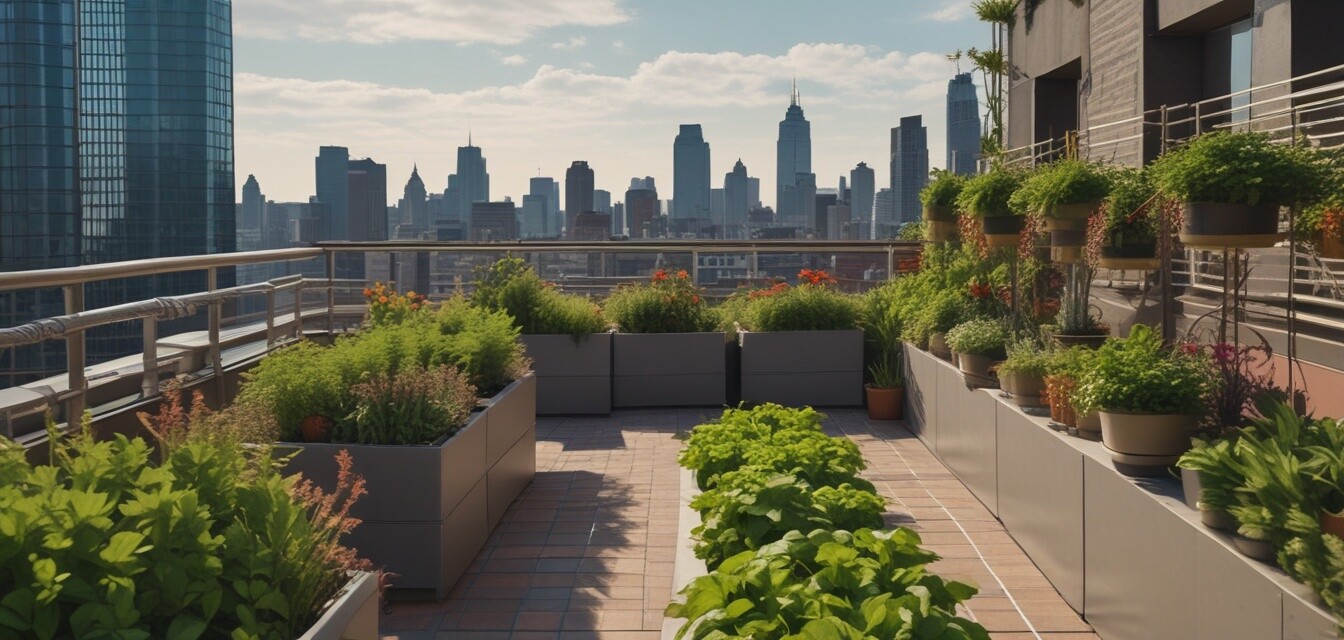
Understanding Urban Gardening Challenges
Key Takeaways
- Urban spaces often limit gardening space, affecting plant variety.
- Soil quality can be compromised; consideration for containers and soil amendments is crucial.
- Light availability varies; using vertical gardening can maximize exposure.
- Water drainage issues can pose challenges; employing the right irrigation methods is essential.
- Choose plants wisely to ensure growth and success in confined areas.
Urban gardening is a rewarding yet challenging endeavor that allows city dwellers to connect with nature even within limited spaces. Despite the numerous benefits it brings, several challenges typically confront urban gardeners. In this article, we will explore these challenges and provide practical solutions to help you grow your green oasis amidst the concrete jungle.
Common Challenges of Urban Gardening
1. Limited Space
One of the most significant challenges urban gardeners face is limited space. Balconies, rooftops, and small yards often restrict the variety and number of plants that one can grow. However, this challenge can be tackled through smart gardening techniques:
- Vertical gardening: Utilize wall spaces and hanging planters.
- Container gardening: Grow plants in pots to make them mobile and versatile.
- Herb gardens: Opt for compact plants that are ideal for small spaces.
2. Poor Soil Quality
Urban soil often suffers from contamination and poor nutrient quality. Many urban gardeners do not have access to high-quality soil. Here’s how to address soil challenges:
- Raised garden beds: Elevate your plants above potentially contaminated ground.
- Soil testing: Evaluate your soil's pH and nutrient levels before planting.
- Soil amendments: Use organic compost and fertilizers to enrich the soil quality.
3. Limited Sunlight
Skyscrapers and buildings can obstruct sunlight, impacting plant growth. To maximize light exposure in your garden, consider the following:
- Plan your layout: Position taller plants on the north side to avoid shading others.
- Utilize reflective materials: Mirrors or light-colored surfaces can help redirect light to your plants.
- Choose shade-tolerant plants: Incorporate plants that thrive in lower light conditions.
4. Water Drainage Issues
Urban gardens often face drainage problems, leading to waterlogging or unfavorable growth conditions. Some effective strategies include:
- Incorporating drainage materials: Use gravel at the bottom of containers to enhance drainage.
- Drip irrigation systems: Optimize water usage and prevent overwatering with efficient irrigation systems.
- Regular maintenance: Monitor water levels and ensure pots have proper drainage holes.
5. Environmental Stressors
Urban gardening can expose plants to unique stressors such as air pollution, pests, and extreme temperature variations. Here are some ways to overcome these issues:
- Choose resilient plant varieties: Select plants that can withstand urban environmental challenges.
- Use natural pest control: Incorporate beneficial insects or organic sprays to manage pest populations.
- Microclimate management: Provide shade or windbreaks where necessary to protect sensitive plants.
Tips for Successful Urban Gardening
Beginner Tips
Starting your urban garden doesn’t have to be daunting. Here are some tips to ensure your gardening success:
- Start small: Choose a few plants that are easy to care for, such as herbs or leafy greens.
- Develop a consistent watering schedule: Regularly assess the moisture levels of your soil.
- Educate yourself: Explore resources about urban gardening methods and best practices.
Conclusion
While urban gardening presents its challenges, they can be effectively managed with the right strategies and techniques. Whether you're using limited space creatively or overcoming soil and sunlight constraints, the joy that gardening brings can make the effort worthwhile. Visit our Garden Inspiration section for more tips and ideas to create your urban paradise.
Pros
- Opportunity to grow your own food
- Aesthetic enhancement of urban spaces
- Promotes mental health and well-being
- Encourages community involvement and sharing
Cons
- Limited space and growing area
- Potential soil contamination
- Higher levels of pollution
- Availability of natural resources like sunlight and water
For more insights on gardening trends and tools, check out our News and Trends category.